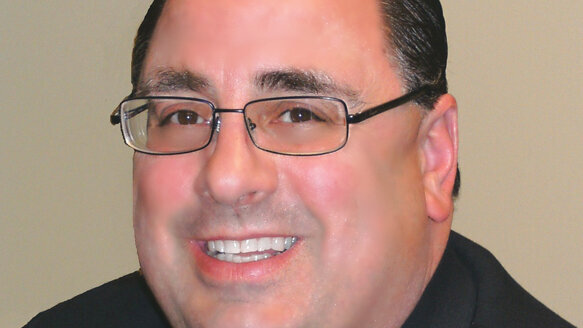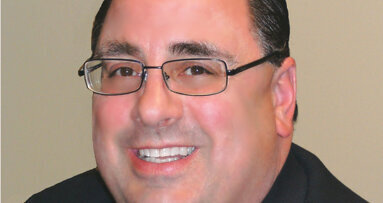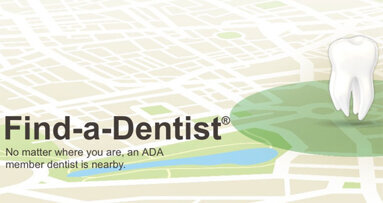Many dentists feel that advertising their practices on the Internet is essential to competing in today’s evolving market. Before 1979, dentists were generally prohibited by law from advertising their dental services in order to avoid misleading the public. Now, dental advertisements are common, but strict restrictions are in place to ensure that the public is not mislead by dentists’ false claims.
All states have laws prohibiting false, deceptive or unsupported statements in dental advertisements. Violating these prohibitions could result in a fine, injunction and censure or in suspension, revocation or limitation of a dental license. Dentists should make a point to understand the applicable laws.
Dental websites are a very common form of advertisement, but dentists must ensure that they are complying with the American Dental Association’s Principles of Ethics and Code of Professional Conduct. Dentists must remember that the same guidelines that apply to advertising in newspapers, magazines, telephone books, brochures, radio and TV also apply to advertising on the Internet.
The rules apply to any statement, oral or written, that offers to perform dental services either directly or indirectly.
The rules apply to advertising of any kind, regardless of whether it is paid advertising or free advertising. Ultimately, the dentist will be the party held responsible for the dental practices’ online websites and advertisements.
This means that whether or not a web consultant designs the dental practice’s webpage, the owner of the dental practice must be involved in the content of the materials posted on the Internet.
Every dentist has a duty to advertise truthfully. Section five of the American Dental Association’s Principles of Ethics and Code of Professional Conduct lays out the ethical standards by stating that no dentist shall advertise or solicit patients in any form of communication in a manner that is false or misleading in any “material” respect.
This includes misrepresentations of fact, making partial disclosures of facts, making self-praising statements, comparing the quality of one dental practice’s services to another dental practice’s services, and making any other statement that would cause a reasonable person to be deceived.
These guidelines have been instated as a method of protecting the public from misleading advertisements inducing the patient to seek dental services at a particular office. For example, a dentist who advertises an unearned degree or who falsely advertises that the dental practice specializes in a certain area of practice would be guilty of misleading patients in a “material” respect.
In addition, the American Dental Association’s Code describes claims of superiority as misleading when the claims are not subject to reasonable substantiation.
The licensed dentist’s name and the address of the dental practice should always be identified in an advertisement. If a dentist is advertising fees, a disclaimer should be included stating the description of the service, the specified period during which the fee is in effect and that the fee is a minimum fee only.
In addition, if a dentist advertises specialty services such as orthodontic, oral surgery or endodontic procedures, the dentist should also state whether the services will be performed by a general dentist or a specialist.
When advertising on the Internet, there are many phrases that should not be used. First, phrases of superiority such as “the best” should be avoided. Dentists should never claim that services are “painless” or that specific results are “guaranteed.”
In addition, some states prohibit testimonials on dental websites. A testimonial is a quote from a past patient recommending a specific dental practice. In states that do allow testimonials, phrases such as “the best” are still prohibited.
Dentists should refrain from advertising on the Internet (or in general) that their dental practice specializes in an area that the American Dental Association or state law does not recognize.
For example, because cosmetic dentistry is not an American Dental Association recognized specialty, a dentist should not advertise that the dentist specializes in cosmetic dentistry.
In order for a dentist to advertise as a specialist, the dentist should have completed a specialty program that is approved by the American Dental Association Commission on Dental Accreditation.
However, if the dentist is recognized by a specialty accrediting organization other than one that has been recognized by the American Dental Association, then the dentist should state that the referenced organization is not recognized as a specialty accrediting organization by the American Dental Association.
In addition, dentists should not advertise on the Internet (or in general) the name of any person who is not either an owner of the dental practice being advertised or a person who is actually involved in the practice.
However, you may identify the prior owner of the dental practice for a reasonable period of time if you have express written permission from that dentist.
Dentists should also refrain from advertising an honorary degree or a degree awarded by an unaccredited institution. Finally, a dentist should not claim to be a member of the American Dental Association in an advertisement unless the dentist is, in fact, a member of the American Dental Association.
These regulations are designed to protect patients from misleading information projected by advertising dentists. A patient is not able to make informed decisions when faced with misleading advertisements.
Honest, non-deceptive advertisements of a dental practice help patients make informed decisions regarding their dental care. False representations may result in disciplinary action by a state board and civil liability. Dentists are obligated to respect patients’ trust and to communicate accurate and honest information.
About the author
Stuart J. Oberman, Esq., has extensive experience in representing dentists during dental partnership agreements, partnership buy-ins, dental MSOs, commercial leasing, entity formation, real estate transactions, employment law, dental board defense, estate planning and other business transactions.
Editorial note: This article was originally published in Dental Tribune Vol. 6 No. 7, April 2011.
Web-based dental software delivers a host of advantages over traditional client-server software. Dental practices that utilize the cloud to manage their ...
Dentists have a right to promote their practices through various forms of advertising. However, ethical guidelines regarding advertising must be followed. ...
CHICAGO, Ill., USA: The American Dental Association (ADA) has launched a new national digital advertising campaign to encourage adults to visit a dentist. ...
LEIPZIG, Germany: Rural communities across the US are facing a growing oral health crisis as access to fluoridated water and dental care diminishes. This ...
CHARLOTTE, N.C., US: Dentsply Sirona has announced the US market launch of MIS LYNX, a cost-effective dental implant solution designed by MIS Implants ...
BOSTON, US: In the US, dental care remains largely excluded from medical insurance and separated from public health initiatives that promote prevention. A ...
Get ready to take your dental practice to the next level! Register today for the 2025 Florida Dental Convention (FDC2025). FDC2025 will take place June ...
Can I as a health care employer require my employees to get COVID-19 vaccines? If I require staff members to be vaccinated, what proof can I request them to...
MELVILLE, N.Y., USA: Henry Schein Inc. and Internet Brands, a KKR portfolio company, have announced the completion of a joint venture to form Henry Schein ...
COLLEGE STATION, Texas, US: The methods dentists currently use to assess bone for implantation provide only indirect insights into bone mechanics. Since ...
Live webinar
Wed. 4 March 2026
12:00 PM EST (New York)
Munther Sulieman LDS RCS (Eng) BDS (Lond) MSc PhD
Live webinar
Wed. 4 March 2026
1:00 PM EST (New York)
Live webinar
Wed. 4 March 2026
8:30 PM EST (New York)
Lancette VanGuilder BS, RDH, PHEDH, CEAS, FADHA
Live webinar
Fri. 6 March 2026
3:00 AM EST (New York)
Live webinar
Mon. 9 March 2026
12:30 PM EST (New York)
Live webinar
Mon. 9 March 2026
3:00 PM EST (New York)
Live webinar
Tue. 10 March 2026
4:00 AM EST (New York)
Assoc. Prof. Aaron Davis, Prof. Sarah Baker



 Austria / Österreich
Austria / Österreich
 Bosnia and Herzegovina / Босна и Херцеговина
Bosnia and Herzegovina / Босна и Херцеговина
 Bulgaria / България
Bulgaria / България
 Croatia / Hrvatska
Croatia / Hrvatska
 Czech Republic & Slovakia / Česká republika & Slovensko
Czech Republic & Slovakia / Česká republika & Slovensko
 France / France
France / France
 Germany / Deutschland
Germany / Deutschland
 Greece / ΕΛΛΑΔΑ
Greece / ΕΛΛΑΔΑ
 Hungary / Hungary
Hungary / Hungary
 Italy / Italia
Italy / Italia
 Netherlands / Nederland
Netherlands / Nederland
 Nordic / Nordic
Nordic / Nordic
 Poland / Polska
Poland / Polska
 Portugal / Portugal
Portugal / Portugal
 Romania & Moldova / România & Moldova
Romania & Moldova / România & Moldova
 Slovenia / Slovenija
Slovenia / Slovenija
 Serbia & Montenegro / Србија и Црна Гора
Serbia & Montenegro / Србија и Црна Гора
 Spain / España
Spain / España
 Switzerland / Schweiz
Switzerland / Schweiz
 Turkey / Türkiye
Turkey / Türkiye
 UK & Ireland / UK & Ireland
UK & Ireland / UK & Ireland
 International / International
International / International
 Brazil / Brasil
Brazil / Brasil
 Canada / Canada
Canada / Canada
 Latin America / Latinoamérica
Latin America / Latinoamérica
 China / 中国
China / 中国
 India / भारत गणराज्य
India / भारत गणराज्य
 Pakistan / Pākistān
Pakistan / Pākistān
 Vietnam / Việt Nam
Vietnam / Việt Nam
 ASEAN / ASEAN
ASEAN / ASEAN
 Israel / מְדִינַת יִשְׂרָאֵל
Israel / מְדִינַת יִשְׂרָאֵל
 Algeria, Morocco & Tunisia / الجزائر والمغرب وتونس
Algeria, Morocco & Tunisia / الجزائر والمغرب وتونس
 Middle East / Middle East
Middle East / Middle East
























































To post a reply please login or register